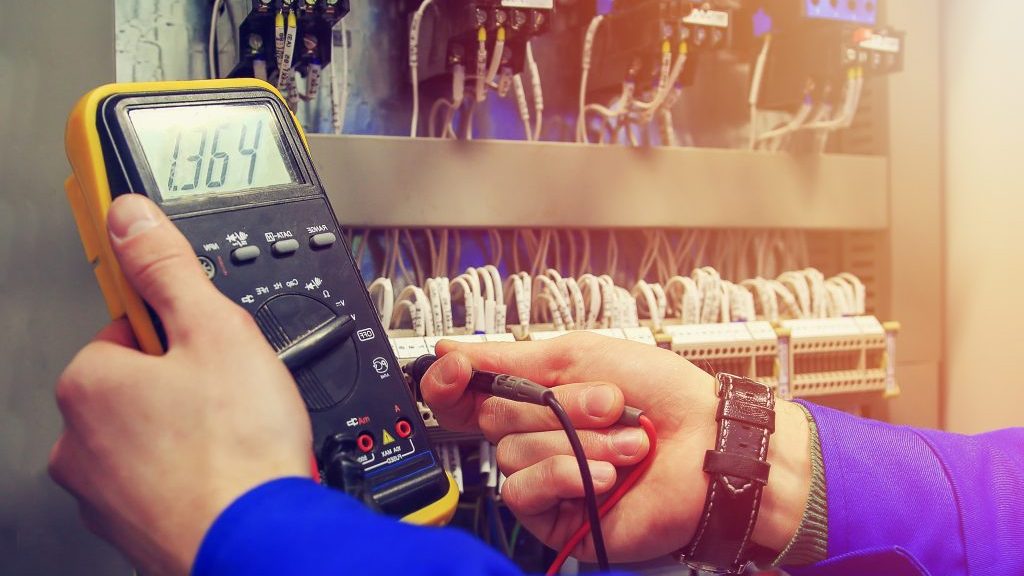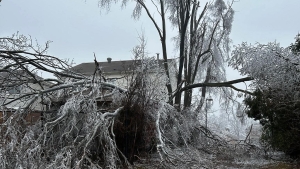Ontario’s unionized electricians in the ICI sector and their partner employers are the first to reach a deal this winter, setting a new wage standard for the other 24 ICI trades with negotiations set to continue over the next two months.
The electrical sector’s wage settlement of an 8.8-per-cent increase over three years, representing a total hike of $6.05 per hour, represents a notable increase over the last deal reached in 2019, when the electricians and their partner contractors agreed on a pay raise of $4.22.
The deal was reached Feb. 17.
“Negotiations take a great deal of honesty and trust from both sides. When those two elements are realized, the outcome will always prove positive,” said James Barry, executive secretary treasurer of the IBEW Construction Council of Ontario, who negotiated for the Electrical Employee Bargaining Agency.
Other stakeholders said they have been keeping close track of the electrical sector’s negotiations to obtain an indication of how much wages will rise elsewhere.
“I think that everyone has been waiting for the electrical contractors to make their deal and we understand that they got a pretty good deal,” said Margaret Taylor of the Demolition Labourers Employer Bargaining Agency, expressing relief.
“It’s pretty promising.
“It was scary. I think in the beginning there were a lot of rumours going around about the numbers just based on the rate of inflation.
“As far as the construction industry goes, there’s lots of work and once they agree to increases and everyone in the industry stays the same, how to keep a level playing field, I think we should be fine.”
Kevin Bryenton, an Ironworkers union executive negotiating with the Ontario Erectors Association and the Reinforced Steel Institute of Ontario, also suggested negotiations should make good progress now that electrical has settled.
“I don’t know that there will be any major hurdles,” said Bryenton. “Electricity is already settled for a reasonable settlement.”
Brick and Allied Craft Union of Canada executive Tony DiMaria said the bricklayers have had initial discussions with their employers with the focus on ensuring workforce availability.
They have set aside March 8 and 9 and other dates into April but DiMaria too thinks talks will now accelerate.
“Now that we’ve got the electricians settled, that tells the tale more or less,” he said.
Under provincial law, province-wide bargaining in the ICI sector takes place every three years, with contracts expiring on April 30 this year.
The electrical agreement was preapproved by its members through the IBEW’s Joint Proposal process. The deal also includes a potential escalator clause (called a post negotiated wage adjustment) that would increase wages if eight comparable trades settle for higher increases.
Barry said the ECAO bargaining team with Terry Moore as its negotiations chairperson hammered out a “win-win” agreement that included many language changes.
Terms included provisions on parental leave, Truth and Reconciliation Day and 12-per-cent vacation pay.
The wage deal will see a $3 increase in year one, $1.65 in year two and $1.40 in year three.
Graeme Aitken of the ECAO did not respond to a request for comment.
Wayne Peterson, executive director of the Construction Employers Coordinating Council of Ontario (CECCO), said he is hearing that wages will be the major issue this year. He said negotiations got off to a slow start with some bargaining partners spooked by cost volatility and others inhibited from face-to-face negotiations by the pandemic.
“Most of them have not exchanged proposals,” said Peterson.
“There’s the volatility that’s in the construction workplace right now. If you can imagine being a contractor trying to put a price on a job that’s just going to stay out there for a few months before it’s even accepted.
“What’s my material price to be able to get the material that’s specified? We don’t know. Am I going to be able to get the labour required to do the job? I don’t know.”
It all leads to a hesitancy that the sector has not seen before, Peterson said.
Insulators and Asbestos Workers union negotiator Dave Gardner and Carpenters’ Employer Bargaining Agency executive Tony Fanelli also acknowledged that negotiations were off to a slow start. Gardner gave COVID as a reason.
Fanelli said, “I suspect discussions will get more intense as we head into March and April.”
Sean McFarling, general counsel for LIUNA, said the Labourers’ will be countering arguments about supply chain uncertainty by pointing out that members’ purchasing power has been stagnant for many years.
“With rising inflation further threatening our members’ spending power, we are focused on ensuring that our members receive their fair share of the benefits their work contributes to the economic prosperity of Ontario and Canada,” McFarling said in a statement.
Another deadline of note is March 1, which marks the beginning of open season for union representation.
On that date, unions may attempt to raid each other’s members through displacement applications and members are able to decertify from their current bargaining agent through termination applications.
From an employer’s perspective, Peterson said, they can be put in the position of being given notice of a change in employee representation with only two days to respond.
As for the approaching contract deadlines of April 30, Peterson said, ”I don’t anticipate any work stoppages at this time.”
Follow the author on Twitter @DonWall_DCN.











Recent Comments
comments for this post are closed